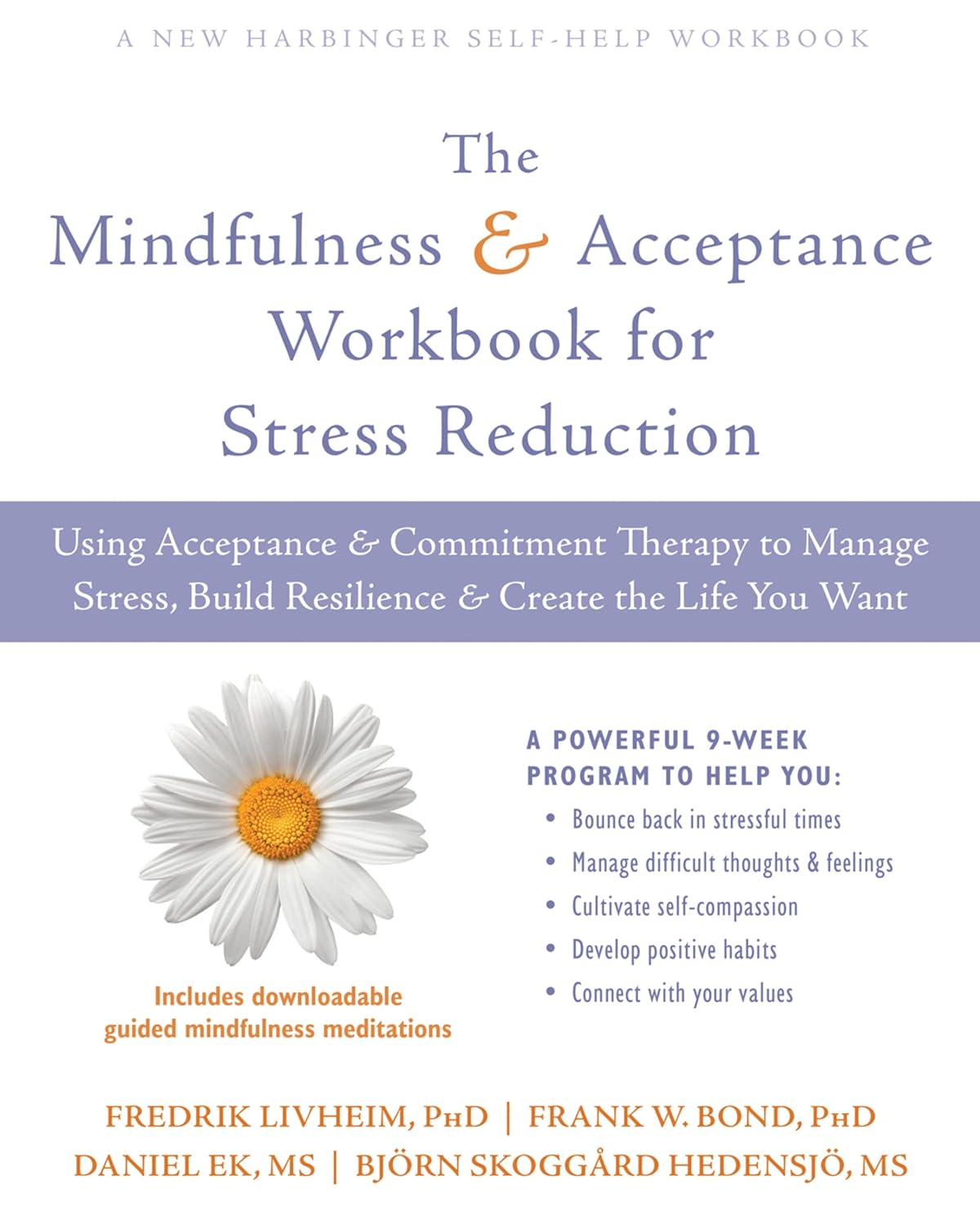
The Mindfulness and Acceptance Workbook for Stress Reduction
Stress is a part of life—but it doesn’t have to take over your life. With this guide, you’ll develop the skills needed to help you manage difficult emotions, cultivate self-compassion, adopt positive physical and emotional habits, build resilience, and connect with your true values.
Everyone experiences stress. From the moment we wake up in the morning to the moment we finally settle into bed at night, our days are packed with stressful moments—some big and some small—that can quickly add up and feel overwhelming. Unfortunately, you can’t escape stress. But you can change the way you relate to it. This important workbook will show you how.
Written by internationally renowned ACT experts, The Mindfulness and Acceptance Workbook for Stress Reduction offers a powerful ten-week program for stress management drawing on the latest research in acceptance and commitment therapy (ACT) and mindfulness. You’ll gain a better understanding of what stress really is, how it affects the brain and body, and what you can do to manage and reduce stress in your life. You’ll discover how to build resilience and set smart, effective personal goals that align with your values. And finally, you’ll learn to be more aware of how you deal with stress in the moment.
Stress is an unavoidable side effect of being human in today’s fast-paced world. But with this workbook, you’ll build the skills necessary to keep stress in its place and live a more vital life!
Editorial Reviews
“The Mindfulness and Acceptance Workbook for Stress Reduction is not a workbook on how to rid yourself of those difficult feelings that get in your way. The book brings in compassion, meaningfulness, and acceptance of the inevitable. The reader is guided to develop courage and resilience in living a valued life together with feelings of stress. A well-packed course for those who want to spend more time living a vital life and less time fighting with stress.”
—JoAnne Dahl, PhD, professor in the department of psychology at the University of Uppsala, Sweden; licensed psychologist; psychotherapist; recognized acceptance and commitment therapy (ACT) trainer; and ACBS Fellow
“Livheim and colleagues’ new stress workbook is packed with good medicine for a stressed-out world. Although the workbook is not written for professionals, therapists and health care workers will find a host of incredible tools, worksheets, and exercises for clients recovering from the stress of acute illness or learning to live more fully with chronic illness.”
—Kelly G. Wilson, PhD, professor of psychology at the University of Mississippi, and author of Mindfulness for Two
“Stress reactivity is a strong predictor of poor physical and mental health. But there is something you can do: acquire the flexibility skills that will help you to change what you can change and relate differently to the things you cannot. Authored by leading experts in stress, this clear and well-written book lays out a comprehensive, step-by-step guide for targeting each of the flexibility processes known to reduce stress. Highly recommended.”
—Steven C. Hayes, PhD, author of Get Out of Your Mind and Into Your Life
“Stress can make our lives miserable, but we can turn things around. This book shows you how. It is comprehensive, evidence-based, practical, and compassionate. I will be recommending it to my clients.”
—Paul Atkins, PhD, director of prosocial psychology and senior research fellow at the Institute for Positive Psychology and Education, Australian Catholic University
“Stress is one of the most taxing and costly threats towards mental health and a prolific, sustainable life. The tools provided in this book make the mapping of stressors in your life, including your values and what makes you thrive, both fun and meaningful. The exercises offered are presented in a way that encourages you, in a self-compassionate way, to live a successful life aligned with your own values. I would like to congratulate the future readers of this book, as well as the team of scientists, practitioners, teachers, and journalists that have cocreated this very rich book that is both evidence-based, inspiring, and almost seamless to read and use.”
—Walter Osika, MD, PhD, associate professor in the department of clinical neuroscience at Karolinska Institutet, Stockholm, Sweden; director of the Center for Social Sustainability at Karolinska Institutet, Stockholm, Sweden; and senior advisor at Stress Clinic Stockholm
About the Author(s)
Fredrik Livheim
Fredrik Livheim, PhD, is a licensed clinical psychologist in the department of clinical neuroscience at the Karolinska Institutet in Stockholm, Sweden. He has trained more than 1,500 professionals in how to use acceptance and commitment therapy (ACT) in a group...
Read MoreBack
